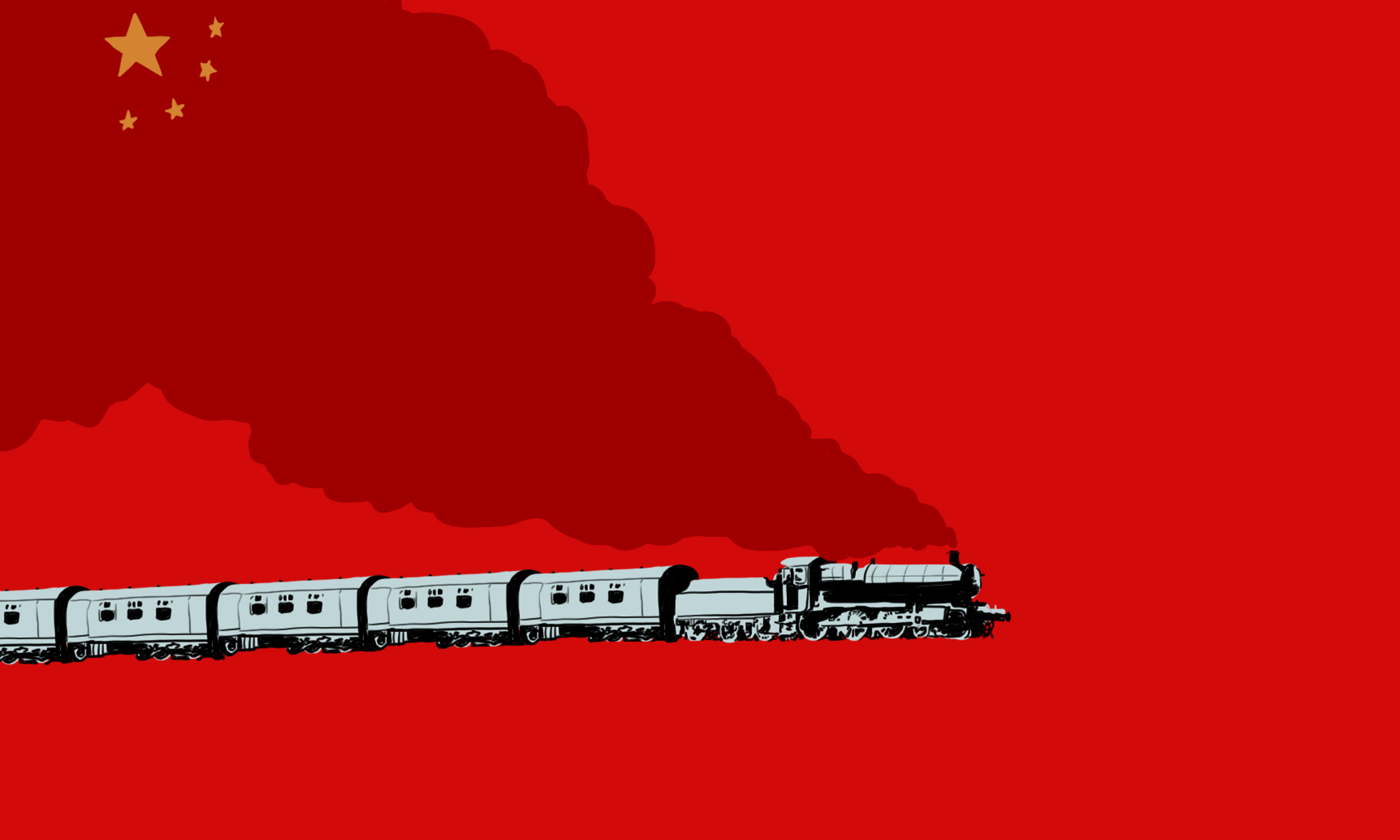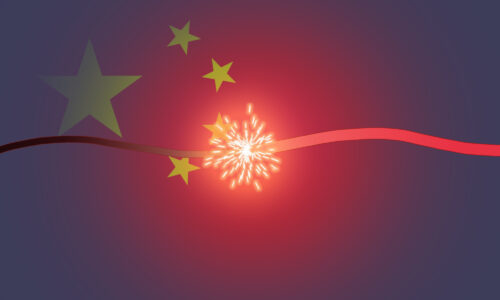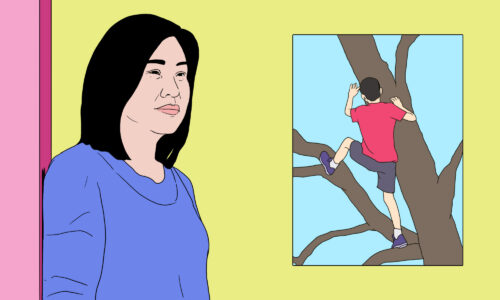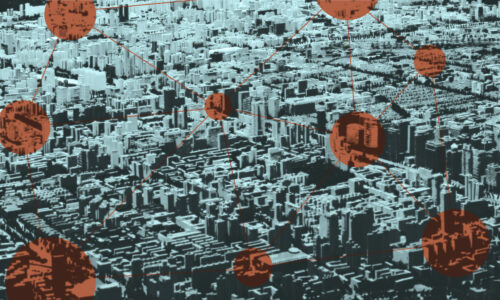China Unbound: The implications of China’s expanding influence
Joanna Chiu's debut book examines China's rise in the context of the global village. What are the various tensions and conflicts arising from China's return to international preeminence?

Going from writing articles to writing a book reminds me of the story of developing the first Star Trek film, where writer Harlan Ellison was trying to incorporate larger and larger concepts to justify the move to the silver screen. Endless attempts to satisfy studio executives received endless demands to think bigger, until finally Ellison came up with something he thought would satisfy: Kirk and crew get sucked into an interstellar warp, zoom through a googol of light years in nanoseconds, and come out at the ultimate edge of the universe. Peering at them, bathed in an incredible white light, is the face of God Himself. “It’s not big enough!” the executive complained. “Didn’t I just tell you guys to think really BIG?”
Hollywood suits are of course idiots, but this guy had the genesis of a point: there had to be a quantum leap, some stellar justification. So I feel it is with journalists transferring their reportage to a book: there has to be some bigger sense to justify the move from daily inksheets to the immortality of hard covers. Certainly Joanna Chiu deserves the opportunity. Her reporting on China has been excellent for many years: I, like many, have followed her career from AFP to NüVoices to the Toronto Star, during which she has been an excellent and undaunted journalist. And so here comes China Unbound, which tracks the issues in which the Chinese government currently finds itself embroiled, across nations and territories such as Australia, Canada, Italy, Hong Kong, Turkey, Russia, and the U.S., and these governments’ varying responses. As a compendium of Chinese foreign policy issues over the past few years it excels. And yet I’m left with a slight feeling of deflation — of the book not quite thinking big enough.
But let’s look first of all at the book’s numerous strengths. Chiu enumerates the various tensions and conflicts arising not merely from China’s rise, but from its aggressive turn dating from around 2012. She starts, in her introduction, with a story that now feels galaxies away: the start of the reform and opening up period, when during a hockey match between China and Canada, fans sang “You yi do yi, bi sai di er” (“Friendship first, competition second”). From there we go to Beijing and a grim tour d’horizon of its various authoritarian outrages: the persecution of “underground” churches; the absurdity of its just-for-show legal system, where 99.9% of those charged are found guilty; the partly-enforced but largely-collective amnesia around the Cultural Revolution; the brutality of the one-child policy; the hukou household registration policy; and the astonishing cruelty of the government’s treatment not just of dissidents but their partners and broader family.
From here it is a short jaunt to Hong Kong, whose various promised freedoms have been shattered under the sweeping (and extraterritorial) National Security Law. Here Chiu discusses Hong Kong’s role as a lost territory and Chinese leader Xí Jìnpíng’s 习近平 vision of Chinese unity. She quotes Xi saying, “We must cement the great unity of all our ethnic groups, and strengthen the great unity of all Chinese sons and daughters at home and abroad.” “Unity” in the Communist lexicon means control by itself, so this is less a meaningless homily and more an ominous justification of extraterritorial action, as Chiu shows.
Perhaps the most important chapters are on the two nations which have been central to China’s efforts to extend its powers, Australia and Canada. The former country is deeply reliant on China’s economy (as Chiu points out, “China now accounts for more than a third of global sales for most of Australia’s top export products,” as well as the vast majority of its iron ore exports, for example), and its liberal democratic openness allowed China to make inroads into influencing its politics. Yet China’s influence operations have been complete failures; they have engendered opposition and antagonism rather than openness to the Chinese government. As Chiu shows, Australia moved in 2017 to stop foreign powers — then-prime minister Malcolm Turnbull naming no names — from “making unprecedented and increasingly sophisticated attempts to influence the political process.” The relationship has since then only deteriorated, from China’s listing of its “fourteen grievances” in November 2020 to Australia signing up to the AUKUS security pact in September 2021. As an example of Xi’s diplomacy, China’s relations with Australia are an utter failure.
The case of Canada, where Chiu is currently based, is grimmer but messier, with hostage diplomacy and China’s abduction of Michael Spavor and Michael Kovrig (in retaliation for Canada’s arrest of Huawei executive Mèng Wǎnzhōu 孟晚舟) the main issue. Despite warnings as Beijing threatened both Canadians of Chinese extraction whose human rights campaigning it dislikes and mainland Chinese students studying there, Chiu shows the arrests of the “two Michaels” was an “I told you so” moment for “the small cohort of journalists, activists, and academics who had earlier tried to warn Ottawa.” One academic puts it succinctly: “There is no reciprocal goodwill present in current Canada-China relations, because China does not respect Canada.” The two Michaels were released after the book was written, but Chiu’s perspective is clear: Canada has not stood up to China yet, but it will have to.
All of which is useful, forcefully expressed, and catalogued in fine detail, explaining their consequence to the wider world. Chiu’s closing prognoses are also a smart collection of methods for countries wishing to oppose the increasing impingement from Beijing. Nations must stand up to the Chinese government’s bullying, because the illusion of its power is far greater than the reality. Education and awareness are essential; funding into Chinese studies is particularly essential. It’s easy, perhaps, to criticize governments, but Western nations have been alarmingly slow in responding to encroachments upon their sovereignty.
But for all that, the sum of the book seems to be: “The Chinese government is bad, and does bad things; here are numerous examples of it being bad.” But why does it behave in this way? And why has its behavior significantly altered, and specifically since the ascent of Xi Jinping? Is it down to him alone or a broader collective turn? What is the role of public opinion on wolf diplomacy? How much of what the Chinese government says is performative, how much is genuine, and how much is just utter bunk? And what does the Chinese government or its diplomats or think-tank functionaries say on any of these matters, if one ever can pin them down? These questions are I think as important as the behaviors Chiu does so well to catalogue, but for the most part the book contents itself with demonstrating the Chinese government’s egregiousness. This may be enough for those who want an account of these outrages, but those seeking a deeper understanding of the roots and manifestations of China’s aggressive turn may be left wanting more.
The real story of China’s foreign relations, I think, is that without the rule of law, an independent judiciary, or any other constraint on its behavior, the Communist Party is quite willing to use whatever argument or methodology will advance its current goals. Sense or shame do not enter into it. So Xi can present himself as the avatar of globalization one day and as the savior of the working man on the next. Hailing all foreign visitors with songs of friendship in one decade and then conducting hostage diplomacy in another is not so much an example of the changing nature of China’s relationship with foreigners as it is a demonstration of its masterful duplicity. China in the early 1970s needed foreign capital, and so lauded friendship with foreign nations, whereas in 2021 it feels constrained by other nations, and wants to demonstrate its vigor for its domestic audience.
But more than that, such sedulous duplicity demonstrates China’s refusal to alter its self-conception as at the center of its universe. Even with a long history — 5,000 years, you may have heard it said — marked by humbling setbacks — most recently under Mao when its economy nearly collapsed — China has yet to lose its sense of itself as a world power. It’s significant that China sees its rise as a return to preeminence, the reawakening of a sleeping giant. It wants the return of the tributary system, in political rather than economic terms, with itself at the center and lesser surrounding nations paying obeisance to its majesty. In a more democratic age, values, rather than deference to power displays, are the key driver of alliances — though perhaps this is a more Western concept, and the Chinese vision may yet win out in Asia.
If journalism is history’s first draft, books such as China Unbound are its first redraft. Chiu’s book clearly advances on newspaper reports and ties them into a larger, and more troubling, pattern of behavior from those helming the Chinese nation. But we demand more of a revision. We expect a stronger, more cogently argued thesis; we want less chronology and more analysis. This may sound like nitpicking about a book that is timely and in its way important, but if you want to boldly go into print, you gotta really think big.
For more book reviews, see our Reading China archive.






